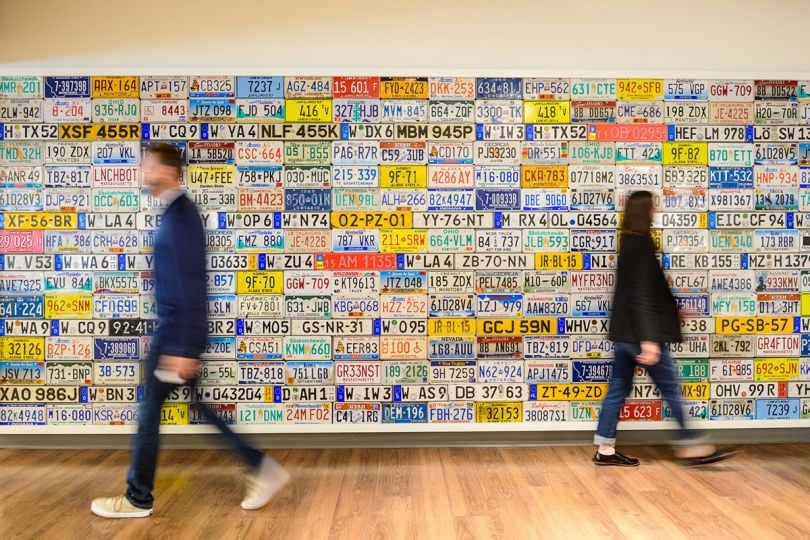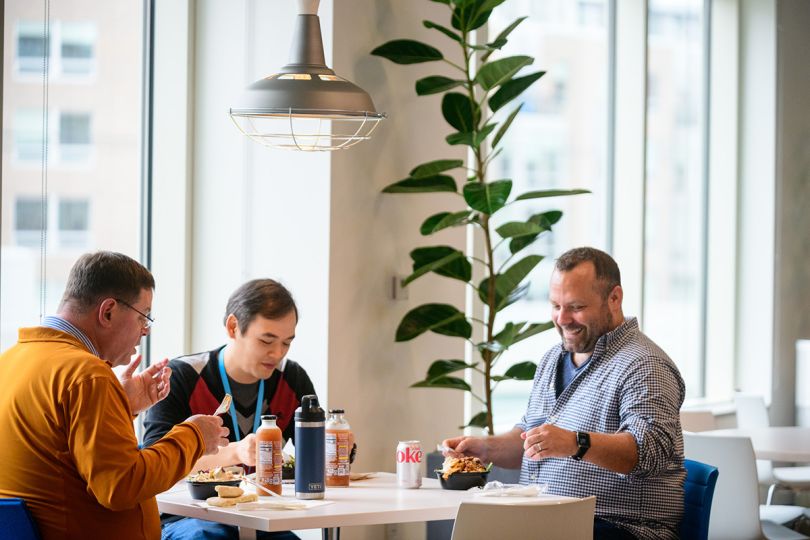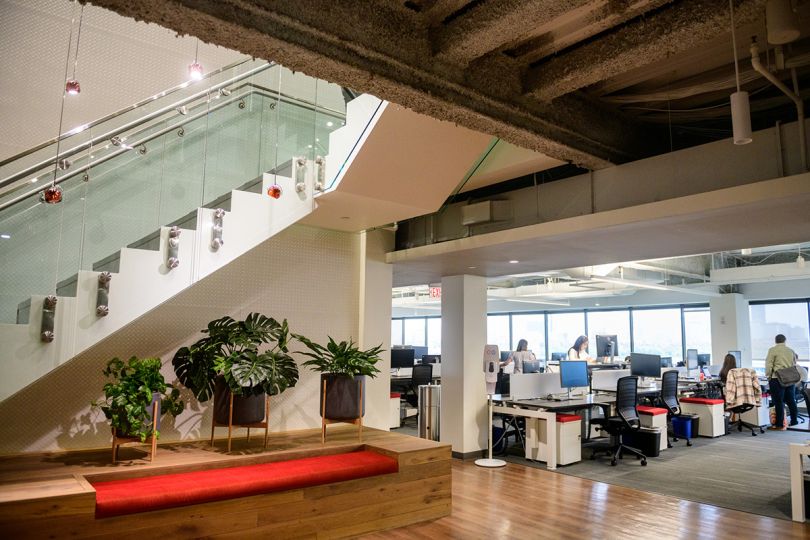Ten years ago, online shopping was largely reserved for nonessential purchases such as books or clothes. The idea of making a major purchase online — like a home or car — sounded absurd. Even as e-commerce gained traction throughout the 2010s, consumers were still hesitant to complete some of life’s largest transactions online.
The pandemic changed everything. In May 2020, e-commerce sales hit $82.5 billion, representing a 77 percent rise in year-over-year sales. And according to McKinsey, consumer adoption leapt forward a decade in a few short months.
These changes begged the question: Are people finally ready to buy cars online? That's the big query that the team at online car-shopping powerhouse CarGurus had already been exploring in the build-up to the launch of their digital retail business.
“Many companies waited to get into this market because they didn’t think the shoppers were there. Then the pandemic made that question sound silly,” said CarGururs Vice President of Engineering Mihaela Bujoreanu. “Now, of course they are going to want to do more of the car shopping process online.”
CarGurus is boldly paving the way for consumers to make one of their biggest purchases online. The digital retail group has digitized the historically in-person and on-paper processes of car buying, helping to transform cargurus.com into a full lifecycle, transaction-enabled platform that empowers consumers to confidently shop, finance, buy and sell cars online, while helping dealers to efficiently find, market and sell cars, too. This brings convenience, transparency and personalization to the vehicle shopping process for all.
The best part is that consumers can customize the process as they see fit, completing as much or as little of the experience as they’d like digitally. And whatever they don’t do online is covered by CarGurus’ dealer-partners on site.
CarGurus Origins
The CarGurus digital retail platform was years in the making, preceding the pandemic by two years. The team laid the groundwork in 2018 by beginning to work on the financial component, before the idea of bringing the full lifecycle online even seemed possible. The team launched a limited version of the product in 2019, then started testing a full rollout in 2020.
“There were three pilots of this product that we had to aggregate into a singular go-to-market product, which is now Digital Deal,” said Director of Commercialization and Strategy Anthony Solesi.
The launch was a massive endeavor. Getting there took a strong vision, innovative attitudes and frictionless cross-team collaboration. “This was a companywide project with more than 20 teams involved,” Solesi noted.
Professionals who’ve participated in a launch of this scale might envision that CarGurus teams were pushed to their limits throughout the process. That was not the case, according to Solesi and Bujoreanu. Everyone worked hard, but thanks to strong communication and planning, their efforts didn’t overtake their personal lives.
In fact, employees managed to take significant time off during the launch. At CarGurus, five- and ten-year anniversaries are recognized with one-month sabbaticals. As fate would have it, a handful of team members qualified for their sabbaticals in the months before launch. Solesi noted that there wasn’t pressure for people to rearrange their plans to accommodate the project timeline, however. Time off is sacred, and Solesi himself was recently able to take the first “real” unplugged vacation of his career.
Built In connected with Bujoreanu and Solesi for behind-the-scenes insight into the Digital Deal product launch, and the culture that makes CarGurus a career destination for sharp, ambitious talent looking for meaningful work in a rapidly changing industry.

CarGurus has brought the car buying experience online. Why is this significant — both to the company and people who buy and sell cars?
Director of Commercialization and Strategy, Anthony Solesi: This was a huge accomplishment for us. Most shopping — for healthcare, pharmacy, pet products, furniture, you name it — happens online. Most car shoppers start online as well. We digitized nearly all steps within the car shopping process to create a fully enabled platform. This lets us offer our shoppers and dealer partners a full range of services through our platform, including financing, trade-in value estimates, the ability to make deposits and even car delivery, bringing them ease, convenience and efficiency, as well as transparency and personalization. We’re making digital retail capabilities a reality for car shopping.
VP of Engineering, Mihaela Bujoreanu: We are thinking about the full lifecycle. We used to have a place for shoppers to research cars, then a place for them to find cars, then a place for them to sell their cars. Now, being able to buy a car just brings the whole lifecycle of car ownership together.
“We’re adding transparency and personalization. We’re making digital retail capabilities a reality for car shopping.”
What does that mean for the shopper?
Solesi: Shoppers can now customize their car shopping experience to meet their needs. They can do as much or as little of the process online from the convenience of their couch while watching Netflix at 10 p.m. They can even elect to have the vehicle delivered, if shipping is offered by the seller. That said, a majority of shoppers still choose to finish the transaction at the dealer — and they arrive more confident and better prepared because they have a package that meets their needs. For many, this means confirming costs and getting financing online — they can walk with the deal they built out and the financing is in place. It saves time for everyone, including the dealers.
Mihaela, you’ve been with the company for 12 years. Did you ever imagine early on that people would get to the point where they would be willing to make this big of a purchase online?
Bujoreanu: Absolutely not. A decade ago, there was none of that. Nobody thought it was possible. But now, you can buy houses online. You wouldn’t have done that back then. Two or three years ago when we started talking about this, one of the biggest discussion points was, “Is this something consumers want?” We had to do the research and find out how much interest there was. It wasn’t a given.
Collaboration is a core value at CarGurus and this project seems like a perfect example of this value in action. What teams were involved in this launch and how did you stay aligned as you work toward your shared goal?
Bujoreanu: This is by far the most complicated project we have ever worked on. It required the most team collaboration I’ve ever seen. We used to have mostly engineering-driven projects, sometimes with product or analytics or a few other teams, but that’s where it stopped. With the digital retail project, we realized there was so much more complexity. Everything had to be orchestrated or it wasn’t going to happen.
Solesi: It touched every corner of the business including product, engineering, legal, marketing and consumer insights. We regularly brought these stakeholders and cross-functional leaders together across the different teams. We had a lot of diverse perspectives so we weren’t functioning in siloes. We opened up new communication channels that have illuminated some of the challenges and opportunities from other departments, like product or engineering. As a result, we’re seeing interdepartmental relationships forming. For example, we have an unofficial Scotch club here — one of many interest-based communities within the company — and it recently expanded from sales to engineering, with everyone coming together to bond over their interests.
CarGurus’ communities and clubs
- AAPI@CarGurus
- CarGurus Salutes Service
- Climate Gurus
- LGBTQ+@CarGurus
- Parents@CarGurus
- People of Color@CarGurus
- Women@CarGurus
- Women in Sales
- Women in Tech
- Anti-Racism Book Club
- Dining Club
- (And many more!)
“With the digital retail project, we realized there is so much more complexity. Everything had to be orchestrated or it wasn’t going to happen.”
What was a particularly interesting challenge you faced when launching this digital retail platform? How did you overcome this?
Bujoreanu: The first thing we worked on was financing, in 2018, before we knew we were going to do the full-blown digital retail platform. Financing is one of the hardest problems that a consumer faces when buying a car. Between lenders, dealers and the legal nuances, it is very difficult. We wanted to give consumers transparency about their financing options. That capability was missing from the market — letting consumers know ahead of time what they could afford. We wanted them to get pre-qualified with real rates, knowing exactly how much they were going to pay monthly without impacting their credit score. We wanted to give them options, from multiple lenders with multiple terms. The biggest challenge was finding lenders that were technologically advanced enough to provide us with API integrations. Every lender was different but we wanted to have one consumer experience.
Solesi: Generally, it was the complexity of the product, taking brick-and-mortar dealer offerings and mirroring them online. There were financing and service and protection plans to consider, all of which are unique to dealers. When the customer prints their deal and walks into the store ready to buy the car with a penny-perfect estimate, and their expectations are set, we knew we needed to provide a seamless and trustworthy experience.
CarGurus’ Tech Stack
- Back end: JavaScript, Java Spring Boot microservices, MySQL, MongoDB, Apache Kafka, RESTful web services
- Front end: JavaScript CSS, React Redux
What’s exciting about the tech tools you are using?
Bujoreanu: We have millions of unique sessions every day, so we had to make sure that we chose technologies that were well-proven to scale. We went with established technologies that are industry favorites. Engineers like to use these because it’s good for them to have proficiency in these technologies for their careers, and it’s good for us since there is a wide talent pool who knows these tools.
The total addressable market of the auto industry is in the trillions. With this new capability in place, what lies ahead?
Solesi: We’re just scratching the surface. This is our first official digital, retail-focused product launch. There are a lot of opportunities to expand on this foundation. Our goal is for wide adoption of this product among our dealer base and to have as much inventory as possible digitally-enabled. The main thing here is that we are actively iterating and testing this product. Our team constantly listens to our dealer partners to make sure this product meets their needs. We have a long game ahead, and we’re in the early innings of the product roadmap.

We’ve talked a lot about the work you’ve done today, but what about the culture you do it in? What role did CarGurus’ culture play in how you approached and executed this launch and how you continue to build on it today?
Solesi: It’s a very flat and transparent culture, which has been great in this cross-functional effort. What attracted me to CarGurus is that it’s a place where you leave your ego at the door. We expect ideas and feedback from all levels, from interns up to the executive team. When you are in a meeting, there isn’t a fear of speaking up. That open-mindedness and open communication played into the success of this product launch. Our customer obsession, for both shoppers and dealers, drives us to keep launching impactful new products while enhancing existing offerings as we collect additional data and customer feedback.
Bujoreanu: CarGurus is a people-first company. We work hard and want to be successful, but at the end of the day, we do it with our people top-of-mind. We understand that employees have families and a life outside of work, and we are very respectful of that. That was true at the beginning when we were a small startup, even though startup culture is well-known for working long nights. We work hard and move quickly, but use good planning and communication to keep things on track.
Sometimes “people-first” can feel like a nebulous concept. What does that look like in action?
Bujoreanu: It comes from the top-down, and is reflected in how people manage and communicate with their teams, as well as the deep policies we create and the comprehensive benefits we offer. For example, our leaders are very accessible. In fact, they host monthly “ask me anythings” for all employees. We have free lunch every day and people make time to enjoy it with one another. Our benefits are very generous and thoughtful; they cover big things like health and dental of course, but also smaller details like commuting costs, gym memberships, and access to daycare and eldercare. CarGurus really tries to give people options that make sense for them and their families.
Solesi: It was a culture shock for me to see how much people respect one another’s time here. Unless something is an emergency with a direct impact on the business, it can wait until the next day. When team members here are on vacation, they are on vacation. My recent time off was the first time I’ve really unplugged during my career. That was refreshing.
“My recent vacation was the first time I’ve really unplugged during my career. That was refreshing.”
What are some unique benefits CarGurus offers?
Bujoreanu: The company recognizes and rewards employees in ways that often surprise people. This comes in the form of regular expressions of appreciation on Slack, pop-up ice cream socials in the office, quarterly awards at our Town Halls and more direct benefits like sabbaticals. After five years, employees get four weeks of paid time off, and another month off after 10 years. Giving employees equity is another way the company says “thank you” that has a huge impact for everyone.

What should new hires expect when joining the team?
Solesi: For my new hires, a lot of the first few weeks will be talking with people to build rapport and get to know the different teams. We ease into the transition of responsibility and leverage a 30-, 60-, 90-day plan.
Bujoreanu: In engineering, we onboard really fast. Every engineer has a buddy. We hope that you push to production in the first week. You’re learning by doing.
We are a very data-driven company. Everything we do, we optimize and justify with numbers. We A/B test everything, all the time. We don’t make assumptions. However, we have no problem giving up on ideas or changing what we are doing. We’re very flexible and observant.
CarGurus has evolved a lot over the years as it’s gone from being a small listings business to a public company that continues to push the boundaries on how cars are bought and sold today. Why did you join CarGurus when you did — and why do you stay?
Bujoreanu: I joined 12 years ago because I absolutely loved my interview process. I enjoyed the people I interviewed with. I respected all of them. They were incredibly smart. I was never a car person, and now I know more than I ever thought I would about buying and selling vehicles, which is actually a fascinating business. That said, CarGurus is a technology-first company. If you like solving hard and interesting challenges, this is the place to be.
I was a startup junkie; I’d only worked at startups before. At this point, I like to say that I’m working at my third CarGurus because it was a startup pre-IPO, then post-IPO with a period of insane growth, and now I’m in the third part of my career with very strategic expansion through this digital retail product. Of course, it’s not the same company I joined years ago, but there is an energy that I really like here, and we’ve kept our values the whole time, which is rare and hugely important to me. We are still a people-first company, but also a bigger company with a different set of challenges.
“My recent vacation was the first time I’ve really unplugged during my career. That was refreshing.”
What keeps me here are the people and the product. I think we are changing the way people buy cars, and that’s exciting to me.







